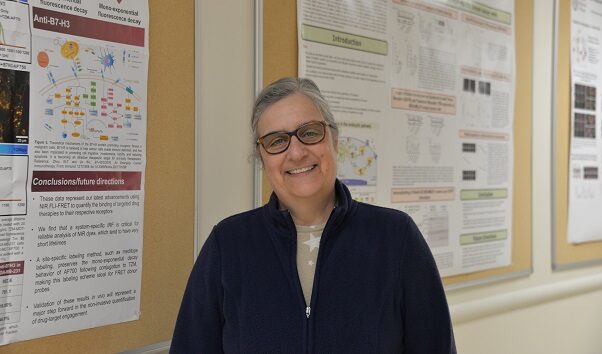Research Offers New Insights into Role of Iron in Breast Cancer Growth

In a recent study published in the journal Oncogene, Albany Medical College scientists offered new insights into the potential role iron may play in the metastatic growth of breast cancer.
“Our research shows that the role of iron may be different, depending on whether it’s in a cancerous tumor in the breast or in cancer cells that have metastasized and spread from the breast,” explained Margarida Barroso, PhD, professor in the Department of Molecular and Cellular Physiology and the corresponding author of the study.
Iron is a mineral that’s essential for cell function, but it’s also been found to enhance the invasive and metastatic capacity of cancerous cells. In addition, previous studies have shown excess iron to be associated with a higher risk for several types of cancer, including breast cancer.
For this study, the researchers sought to better understand the mechanisms behind iron’s impact on metastatic growth, focusing on Divalent Metal Transporter 1 (DMT1), a protein that moves iron from subcellular structures called organelles.
Using cellular models of two breast cancer subtypes – triple-negative, a fast-growing cancer with limited treatment options, and luminal A, a low-grade and usually slow-growing cancer – the scientists “silenced” or temporarily blocked DMT1.
They found that silencing DMT1 had opposite effects on certain subcellular processes in the triple-negative cells compared to the luminal A cells.
Taken together, their results indicate the existence of distinct iron transport pathways among different breast cancer cell lines and suggest that DMT1 is key to the metastatic growth of triple-negative breast cancer cells.
“DMT1 may be a particular and highly specific Achilles’ heel for triple-negative breast cancer cells during metastasis,” said Dr. Barroso, who added that future experiments could corroborate the hypothesis and gauge the effectiveness of DMT1 as a therapeutic target.
The multi-institution study was made possible with support from a grant from the National Cancer Institute and included researchers from the Tisch Cancer Institute at Icahn School of Medicine at Mount Sinai, Binghamton University, Graz University of Technology, Ghent University, and Rensselaer Polytechnic Institute.